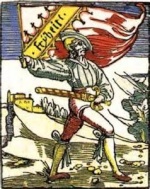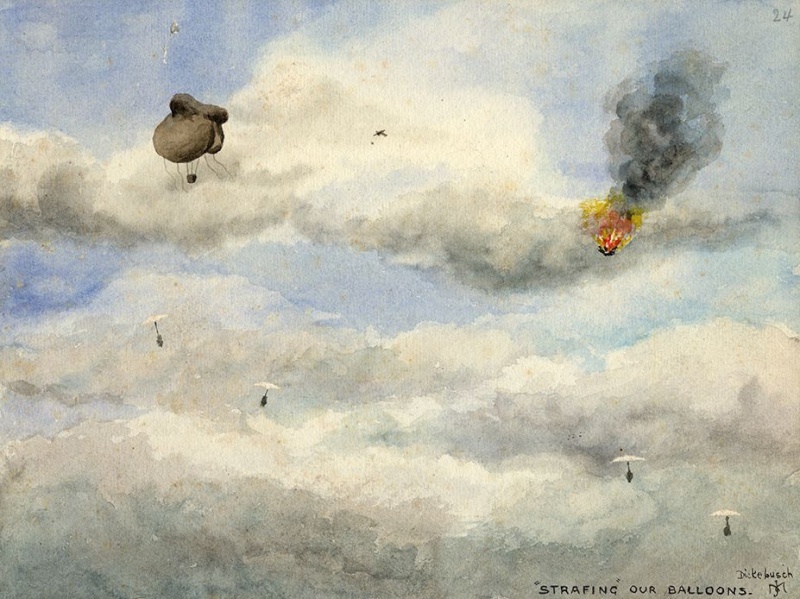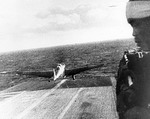|
| | premiere guerre mondiale, generalites |  |
| | | Auteur | Message |
|---|
Bill
Capitaine de vaisseau



Nombre de messages : 4497
Age : 52
Ville : ca vat, ca vient.... j'ai un metier !
Emploi : glorieux et beau
Date d'inscription : 26/06/2006
 |  Sujet: premiere guerre mondiale, generalites Sujet: premiere guerre mondiale, generalites  Mar 11 Nov 2014, 05:59 Mar 11 Nov 2014, 05:59 | |
| J'ouvre ce nouveau sujet, afin de ne pas polluer celui de la chronologie.
j'ai trouves sur le Net US une depeche de l'AFP, montrant la chambre d'un soldat francais de la premiere guerre mondiale, tombes en 1916. La chambre est restes tels qu'a son depart au front, a part la pousiere en plus, rien n'a changes.
je suis surpris que sur le net francais ont ne parle pas de ca, mais bon, entre Nabila, Fillon, Sarko, Hollande et les autres star, forcement, ceux qui sont mort pour leurs Patrie n'ont plus leurs place dans les medias
un lien anglais, avec une videos de la chambre
http://www.telegraph.co.uk/news/worldnews/europe/france/11179687/Inside-the-French-First-World-War-soldiers-memorial-bedroom.html
le lien Americain
http://news.yahoo.com/france-wwi-soldiers-bedroom-frozen-time-033623350.html;_ylt=AwrBEiFqlGFUX1EAhfvQtDMD
Belabre (France) (AFP) - The dust and cobwebs lie thick after nearly a century, but the memory of the French soldier who grew up in this bedroom -- and who died in Belgium in World War I -- is today as vivid as the sunlight streaming through the window.
Dragoons officer Hubert Rochereau's presence permeates the place. It emanates from photos and from the second lieutenant's various possessions -- uniforms, riding trophies, books -- frozen in time on the top floor of a large home in Belabre, a small village in central France.
The vivid vestiges of Rochereau's short life are a testament to the grief his parents felt upon learning of the death of their only son on April 26, 1918, at the age of just 21.
So deep was their bereavement, in fact, that they sought to have his memory live on when they sold the house, stipulating in the deed of sale that their beloved son's bedroom must go untouched for 500 years.
The current owner, Daniel Fabre, has observed their wishes. "It's not an act of devotion but of historic preservation," he tells AFP.
But the clause itself "has no legal basis," he notes. "You can't keep something preserved that way for 500 years under French law."
View galleryA detail of the uniform of French Word War I second …
A detail of the uniform of French Word War I second lieutenant Hubert Rochereau, seen on October 29, …
Fabre, a 72-year-old retired civil servant, took over the large house after the death a decade ago of his wife, who had inherited it from her grandfather.
He proudly shows off the small and tidy room where Rochereau was born, timeworn but remarkably intact.
Cobwebs stretch between a moth-eaten uniform jacket and a wooden desk upon which lies the bric-a-brac that Rochereau collected, including an antique pistol, military manuals, a pipe and a tin of tobacco. Dust hangs in the air.
Yet the small single bed -- covered by a lace spread, the soldier's military academy cap and his posthumous medals -- looks as if it were just made.
Above it hangs a big sepia portrait of young Rocherau in military dress, with a moustache, his gaze direct. A memory of the man who died in a British field hospital the day after being wounded when Germans overran his unit's position in Kimmelberg, a hill in West Flanders.
View galleryBelongings of French Word War I second lieutenant Hubert …
Belongings of French Word War I second lieutenant Hubert Rochereau are seen on October 29, 2014, in …
- Never to be open to the public -
On the walls of the bedroom are artefacts from Rochereau's interest in things military, notably swords and bayonets.
"I believe this is a German bayonet from the First World War," Fabre says, touching one blade. "The rest must date from Napoleon's time, or I don't know when."
Fabre, while respectful of the place, is not sentimental. He has not sought publicity for the bedroom, nor does he feel any attachment to the spectral occupant whose belongings he watches over.
His main concern is that his spacious residence not be overrun by tourists or World War I buffs. He has no plans to open the private memorial to the public, and even asks journalists not to provide images or details that could identify his property from the outside.
View galleryBelabre town's Word War I memorial, on which the …
Belabre town's Word War I memorial, on which the name of French second lieutenant Hubert Rochere …
"I especially don't want to be invaded," he says. "Certainly not. After all, this is my home."
As for the future of Rochereau's bedroom after he too dies, Fabre shrugs. Maybe his daughters will keep it the way it is, most likely they will end up selling the home.
"To be brutal: I don't give a damn. What happens after me, generally speaking, I don't care.... But I think it would be a shame to get rid of all this," he says, looking around the room.
Memorials to Lieutenant Rochereau do exist elsewhere in the village: on a list engraved in a stone monument to those fallen in the war in Belabre's centre; and in the local graveyard, where the soldier's ivy-covered tomb towers over lines of headstones.
But it is the secret bedroom that has become a point of pride for the villagers.
"It's history, but it's also a form of family worship," says the mayor, Laurent Laroche.
For so long, Rochereau was an obscure name, one of the nine million soldiers who died in World War I.
But now "he reappears 100 years later... and I think that if they could see that somehow, his parents would be satisfied," Laroche says.
Dernière édition par Bill le Mar 11 Nov 2014, 06:10, édité 2 fois |
|   | | Bill
Capitaine de vaisseau



Nombre de messages : 4497
Age : 52
Ville : ca vat, ca vient.... j'ai un metier !
Emploi : glorieux et beau
Date d'inscription : 26/06/2006
 |  Sujet: Re: premiere guerre mondiale, generalites Sujet: Re: premiere guerre mondiale, generalites  Mar 11 Nov 2014, 06:01 Mar 11 Nov 2014, 06:01 | |
| Dans la même eau, les 250 000 soldats britanniques ages de 16 a 18 ans... apparemment parfois 14 ans était possible...
http://www.bbc.com/news/magazine-29934965
As many as 250,000 boys under the age of 18 served in the British Army during World War One. Fergal Keane remembers the sacrifice they made.
War confers many things on boys who pick up a weapon to fight. They learn the true meaning of fear. They test their own capacity for courage and the limits of human endurance, physical and mental.
Some find that killing comes easily to them, too easily. And others recoil from acts of blood.
But what unites all teenage warriors is the speed with which they are hurled into a place of maiming and death.
Describing the training of a boy soldier in World War One, Wilfred Owen, wrote in Arms and the Boy:
Let the boy try along this bayonet-blade
How cold steel is, and keen with hunger of blood;
Continue reading the main story
Find out more
Fergal Keane
Teenage Tommies, presented by Fergal Keane, will be broadcast on Tuesday 11 November at 21:00 GMT on BBC Two.
Or catch up later on BBC iPlayer
What life was like in the trenches
Blue with all malice, like a madman's flash;
And thinly drawn with famishing for flesh.
Lend him to stroke these blind, blunt bullet-heads
Which long to muzzle in the hearts of lads.
Or give him cartridges of fine zinc teeth,
Sharp with the sharpness of grief and death.
From Homer's Iliad to the present day the stories of boy soldiers evoke a particular sadness, resonant as they are of the destruction of youth and possibility.
But at the outbreak of the Great War there was nothing to suggest that the tens of thousands of boy volunteers were about to join a long, doomed procession.
Nearly 250,000 teenagers would join the call to fight. The motives varied and often overlapped - many were gripped by patriotic fervour, sought escape from grim conditions at home or wanted adventure.
Cyril Jose
After being wounded on the battlefield it took Cyril Jose two days to crawl back to the British lines
Technically the boys had to be 19 to fight but the law did not prevent 14-year-olds and upwards from joining in droves. They responded to the Army's desperate need for troops and recruiting sergeants were often less than scrupulous.
"It was obvious they weren't 19," says historian Richard Van Emden, "but you'd have a queue of men going down the road, you're getting a bounty for every one who joins up, are you really going to argue the toss with a young lad who's enthusiastic, who's keen as mustard to go, who looks maybe pretty fit, pretty well. Let's take him."
Fifteen-year-old Cyril Jose was a tin-miner's son from Cornwall. With the region suffering from heavy unemployment, the boy with a strong sense of adventure joined up. From his training camp he wrote an excited letter to his sister:
"Dearest Ivy, stand back. I've got my own rifle and bayonet. The bayonet's about 2ft long from hilt to end of point. Must feel a bit rummy to run into one of them in a charge. Not 'arf. Goodbye and God bless you, from your fit brother, Cyril."
Cyril survived the war but the bloodshed he witnessed in France turned him into a vehement opponent of militarism for the rest of his life. In one letter home he poured scorn on the British commander, Field Marshal Earl Haig.
"What brains Earl Douglas must have. Made me laugh when I read his dispatch. 'I attacked.' Old women in England picturing Sir Doug in front of the British waves brandishing his sword at Johnny in the trenches... attack Johnny from 100 miles back. I'll get a job like that in the next war."
line
Why did so many teenagers make it to the battlefield?
5 October 1917: British troops moving up to the trenches, 2.5 miles east of Ypres
Recruitment officers were paid two shillings and sixpence (about £6) for each new army recruit, and would often ignore any concerns they had about age.
Many people at the start of the 20th Century didn't have birth certificates, so it was easy to lie about how old you were.
The minimum height requirement was 5ft 3in (1.60m), with a minimum chest size of 34in (0.86m). If you met this criteria you were likely to be recruited.
Some young boys were scared of being called a coward and could not resist the pressure from society.
How did Britain let 250,000 underage soldiers fight in WW1?
line
The patriotic imperative at the outbreak of war was not confined to British-born boys. For the children of migrants, rallying to the flag was proof of loyalty to their new country.
Aby Bevistein was born in Russian-occupied Poland in 1898 and came to London when he was three. In September 1914 Aby volunteered, changing his surname to the English "Harris".
Aby Bevistein
Aby Bevistein's parents were heartbroken when he joined the army
Soon after his arrival in France Aby discovered the wretched nature of trench warfare. He wrote home:
"Dear mother, I've been in the trenches four times and come out safe. We're down the trenches for six days and then we get relieved for six days' rest. Dear mother, I do not like the trenches. We're going in again this week."
For Aby, and many like him, the trenches meant cold and mud, wet clothes and rats, the smell of death and the sight of mutilated flesh, long monotonous hours interrupted by terror.
On 29 December 1915 Aby was caught in a German mine explosion - the enemy had tunnelled under the trench where he was stationed. He was wounded and suffered what was then simply called "shock". In today's military lexicon it would be described as "combat stress" or "post traumatic stress disorder".
By early spring Aby was back on the front. On 12 Feb 1916 the Germans again attacked his position, this time with grenades.
Continue reading the main story
“
Start Quote
Dear mother, I'm in the trenches and I was ill so I went out, and they took me to the prison and I'm in a bit of trouble now”
Aby Bevistein
Suffering from shock, Aby wandered back and forth along the British lines. He was eventually arrested and charged with desertion. His last letter home is that of a boy who seems determined to underplay his situation, not to put stress on his mother at home.
"Dear mother, I'm in the trenches and I was ill so I went out, and they took me to the prison and I'm in a bit of trouble now."
The following month Aby then aged 17, became one of the 306 British soldiers executed during the Great War.
Those who survived the trenches and came home brought memories that retained the power to haunt until the end of their lives. St John Battersby was 16 when he was severely wounded at the Battle of the Somme in July 1916.
Like all of the teenaged officers, Lieutenant St John Battersby had responsibilities far beyond his years, as his son, Anthony, recalls:
St John Battersby
St John Battersby was first stationed near Serre in the Somme region
"There's my dad, 16-years-old, really in the war. He is responsible for 30-odd men and his decisions may result in them dying or not dying. This was it."
Three months after he was wounded, St John Battersby was back in France leading men in battle again. He could have opted to stay at home - by now the government was taking all those under 19 years of age out of the front lines. But a shortage of experienced officers meant they were allowing boys like St John Battersby to stay on if they wished.
A sense of duty compelled St John to return. Soon after coming back he was blown up by a German shell and lost his left leg. Determined to continue helping the war effort, he asked for, and was given, an administrative job in Britain.
But years later, after a fruitful life serving as a country vicar, the memories of war returned. His son Anthony remembered his father's last hours.
"In the hour or two before he died, he was on the Western Front, yelling, 'the Bosch are coming. We're going over the top now'. Right down deep on the ground floor of his memory was the Western Front."
The man facing death was once again the boy who had cheated it so many times. |
|   | | warburton
Amiral



Nombre de messages : 12171
Age : 77
Ville : bretagne
Emploi : antimythes
Date d'inscription : 05/03/2011
 |  Sujet: Re: premiere guerre mondiale, generalites Sujet: Re: premiere guerre mondiale, generalites  Mar 11 Nov 2014, 18:05 Mar 11 Nov 2014, 18:05 | |
| bonsoir
on peut ne pas trop aimer les Anglais (comme Bill), ou les étasuniens (comme moi); mais il faut leur reconnaitre une qualité que nous ne semblons pas posséder: la mémoire.
cet officier n'était rien d'autre que l'une des innombrables victimes de la grande boucherie. il se trouve simplement que ses parents ont su préserver son souvenir.
et ce sont des médias anglo-saxons qui en parlent…
quand il s'agit de faire parler d'eux, nos élus parviennent toujours à dégotter un survivant de 14-18, que l'on décore en grande pompe, sans trop se soucier de savoir s'il n'était pas coiffeur, ou cuisinier dans une garnison de Limoges ou de Rodez.
je suis parfaitement hermétique au culte des morts. mais, en l'occurrence, je pense qu'il serait utile de préserver cette chambre.
on le fait bien pour des politiciens, des artistes, des écrivains, et on le fera probablement pour des acteurs ou des chanteurs.
ce "décor" me semble plus apte à perpétuer le souvenir, que toutes leurs cérémonies commémoratives. évidemment, c'est moins "pipole".
pourquoi - pour une fois - ne pas le faire pour un inconnu "mort pour la France" ?
les grands salopards de cette guerre ont bien (tous !) leurs avenues, leurs monuments, ou leurs musées.
non; je ne suis pas un rouge; mais je ne leur abandonne pas le monopole de la critique.
sinon, à ceux qui voudraient tenter d'imaginer l'horreur de cette saloperie, je conseillerais la visite d'un champs de bataille (le Linge par exemple), et la lecture de ceux qui l'ont vécue: Barbusse, Dorgelès, Duhamel, Genevoix, Remarque…
pour n'en citer que quelques-uns.
vous imaginez ? à cette époque des écrivains faisaient la guerre !
depuis, ils se contentent de se déguiser en soldat d'opérette. c'est beaucoup moins risqué.
si vous pensez que je vise quelqu'un… vous avez raison. |
|   | | Bill
Capitaine de vaisseau



Nombre de messages : 4497
Age : 52
Ville : ca vat, ca vient.... j'ai un metier !
Emploi : glorieux et beau
Date d'inscription : 26/06/2006
 |  Sujet: Re: premiere guerre mondiale, generalites Sujet: Re: premiere guerre mondiale, generalites  Sam 22 Nov 2014, 03:43 Sam 22 Nov 2014, 03:43 | |
| Un sites et des dessins d’époques, les poilus était lucide. http://geopolis.francetvinfo.fr/le-dessinateur-inconnu-de-la-grande-guerre-46936   |
|   | | Bleu Marine
Elève officier



Nombre de messages : 1154
Age : 72
Ville : Clermont-Ferrand
Emploi : Retraité
Date d'inscription : 29/01/2014
 |  Sujet: Re: premiere guerre mondiale, generalites Sujet: Re: premiere guerre mondiale, generalites  Sam 22 Nov 2014, 08:59 Sam 22 Nov 2014, 08:59 | |
| Bonjour,
Quelques liens en français sur la chambre d'Hubert Rochereau :
http://www.lanouvellerepublique.fr/Indre/Actualite/24-Heures/n/Contenus/Articles/2014/10/11/La-chambre-momifiee-du-jeune-officier-2077393
http://www.europe1.fr/societe/dans-la-chambre-d-hubert-rochereau-mort-en-1918-2261041
http://france3-regions.francetvinfo.fr/centre/2014/10/16/la-chambre-d-un-poilu-restee-intacte-depuis-100-ans-572466.html |
|   | | Invité
Invité
 |  Sujet: 1 re' GM Généralités. Sujet: 1 re' GM Généralités.  Dim 07 Déc 2014, 10:05 Dim 07 Déc 2014, 10:05 | |
| Bonjour à tous,
Il faut être curieux,voir le forum 14-18 très bon reportage sur cette question.
Bien cordialement MONCEY |
|   | | Invité
Invité
 | |   | | Takagi
Vice-amiral



Nombre de messages : 7901
Age : 44
Ville : Saint-Cannat (13)
Emploi : Oui
Date d'inscription : 03/09/2010
 |  Sujet: Re: premiere guerre mondiale, generalites Sujet: Re: premiere guerre mondiale, generalites  Dim 07 Déc 2014, 12:24 Dim 07 Déc 2014, 12:24 | |
| - Bill a écrit:
- Dans la même eau, les 250 000 soldats britanniques ages de 16 a 18 ans... apparemment parfois 14 ans était possible... (...)
Voire même dès douze ans dans certaines circonstances...  |
|   | | Bill
Capitaine de vaisseau



Nombre de messages : 4497
Age : 52
Ville : ca vat, ca vient.... j'ai un metier !
Emploi : glorieux et beau
Date d'inscription : 26/06/2006
 |  Sujet: Re: premiere guerre mondiale, generalites Sujet: Re: premiere guerre mondiale, generalites  Mar 09 Déc 2014, 06:03 Mar 09 Déc 2014, 06:03 | |
|
Je viens de lire un livre de l’académicien Max Gallo, 1914, "le destin du monde"
quelques semaine avant la guerre, le sénateur Charles Humbert, sénateur, ministre de la défense, rapporteur de la commission sénatoriale aux affaire militaire, parla de son rapport sur la situation de l’armée française et de sa préparation a la guerre en ces termes:
- nous ne somme ni gouvernes, ni défendus, hormis le canon de 75, l’armée ne dispose d'aucun armement moderne, les pièces d'artillerie equipant nos fortifications sont antérieur a 1870
reponse de Joffre: vous ne croyez pas en l’héroïsme du soldat Francais. "
fabuleux n'est ce pas ?
Aussi, le même sénateur a écrit en 1909 un livre: "la flotte fantome, ni navires, ni canons ni obus"
je ne l'ai pas lu, mais le titre me laisse reveur
Sommes-nous défendus? ("Are we defended?") (1907)
La flotte fantôme: ni bateaux, ni canons, ni obus ("The phantom fleet: no ships, no guns, no shells") (1909)
http://en.wikipedia.org/wiki/Charles_Humbert
Bizarrement, le site du Senat ne parle vraiment pas beaucoup de ces livres.
http://www.senat.fr/senateur-3eme-republique/humbert_charles1020r3.html#1889-1940
|
|   | | Invité
Invité
 |  Sujet: généralités sur la guerre 14/18 Sujet: généralités sur la guerre 14/18  Mar 09 Déc 2014, 06:05 Mar 09 Déc 2014, 06:05 | |
| Bonjour à tous,
Lors de la guerre 14/18,il y avait deux bataillons des Douanes qui dataient de 1804.Créés par Napoléon 1er
pour la surveillance de la Baltique.
Ces bataillons ont été dissous en 1945 pour rejoindre le Ministère du Budget.
Bien cordialement MONCEY |
|   | | Contenu sponsorisé
 |  Sujet: Re: premiere guerre mondiale, generalites Sujet: Re: premiere guerre mondiale, generalites  | |
| |
|   | | | | premiere guerre mondiale, generalites |  |
|
Sujets similaires |  |
|
| | Permission de ce forum: | Vous ne pouvez pas répondre aux sujets dans ce forum
| |
| |
| |
